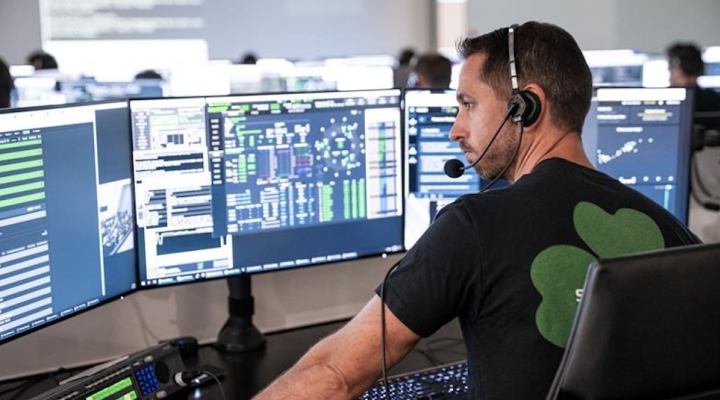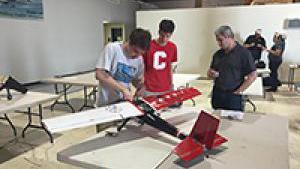By Geoffrey Giller
When Eric Fiegel first came to Cornell, he thought that project teams sounded interesting. In particular, he liked airplanes and aerospace, so he applied to be on the Design/Build/Fly team, or DBF, which designs and builds a small aircraft from scratch every year, culminating in an international competition. But he didn’t make the cut.
“I didn’t know they were so competitive,” he admits, and realized that he hadn’t prepared for the application process sufficiently. He made the team his sophomore year, though, once he had a better sense of what was required. That year, he worked on the propulsion of the plane; his junior year, he rose to head the propulsion team, and his senior year he was one of the two overall DBF leads.
Now, Fiegel works at Boeing, where he also interned the summer before his senior year. After working on the propulsion team of DBF, he got to work on propulsion development at Boeing. He no longer works on airplanes, instead working with Boeing’s satellite systems, but nevertheless, he says, “the skills are really transferrable.” For example, he works with computer-assisted design, or CAD, tools, to model different parts, which he also used on DBF. And, as other project team alumni have mentioned, the soft skills of working within a team have also served him well so far.
As illustrated by his experience in his first year, DBF (and the other project teams at Cornell) are quite competitive.
“I have never heard of another school where you could have 100 people apply and only let five people onto your team,” Fiegel says. He’s not sure whether Cornell students overall are more competitive and have more of a drive to be on a team like that, but that selectiveness may help account for the success of Cornell project teams: even when they don’t win, they tend to do quite well. (DBF came in 8th out of 80 teams Fiegel’s junior year, and 13th out of 95 teams his senior year).






